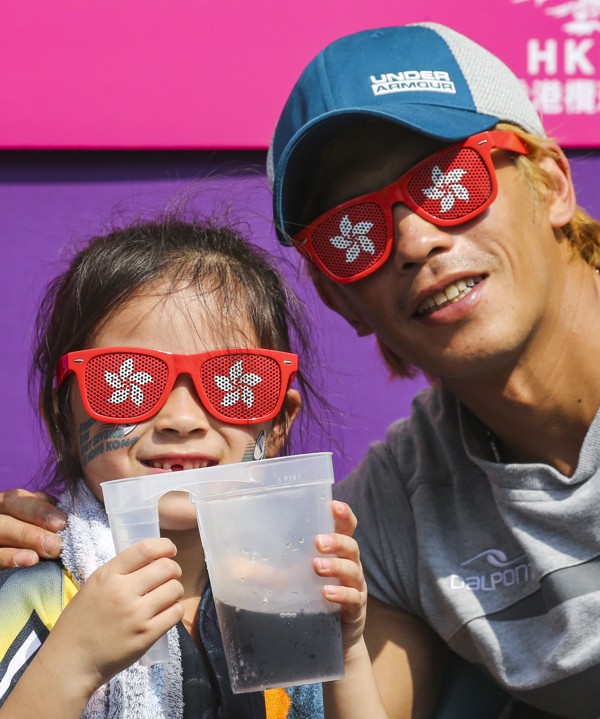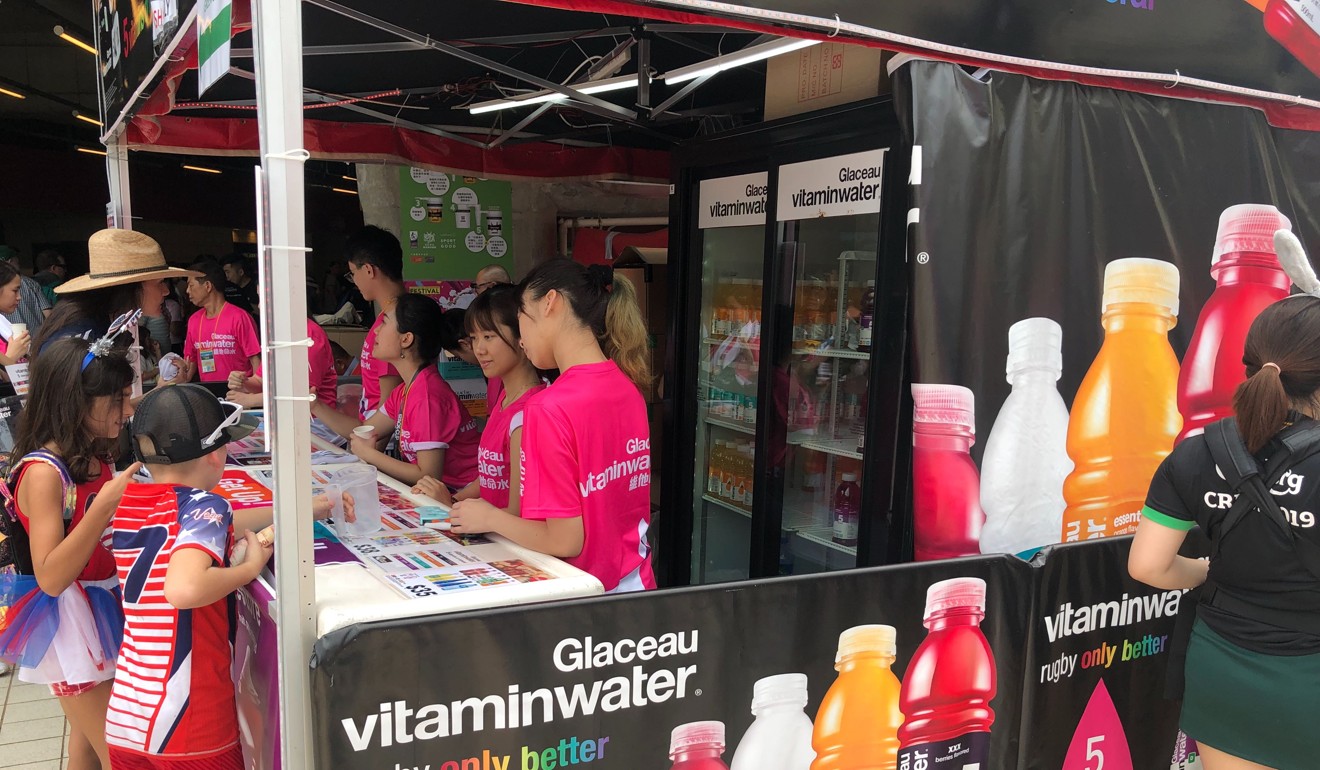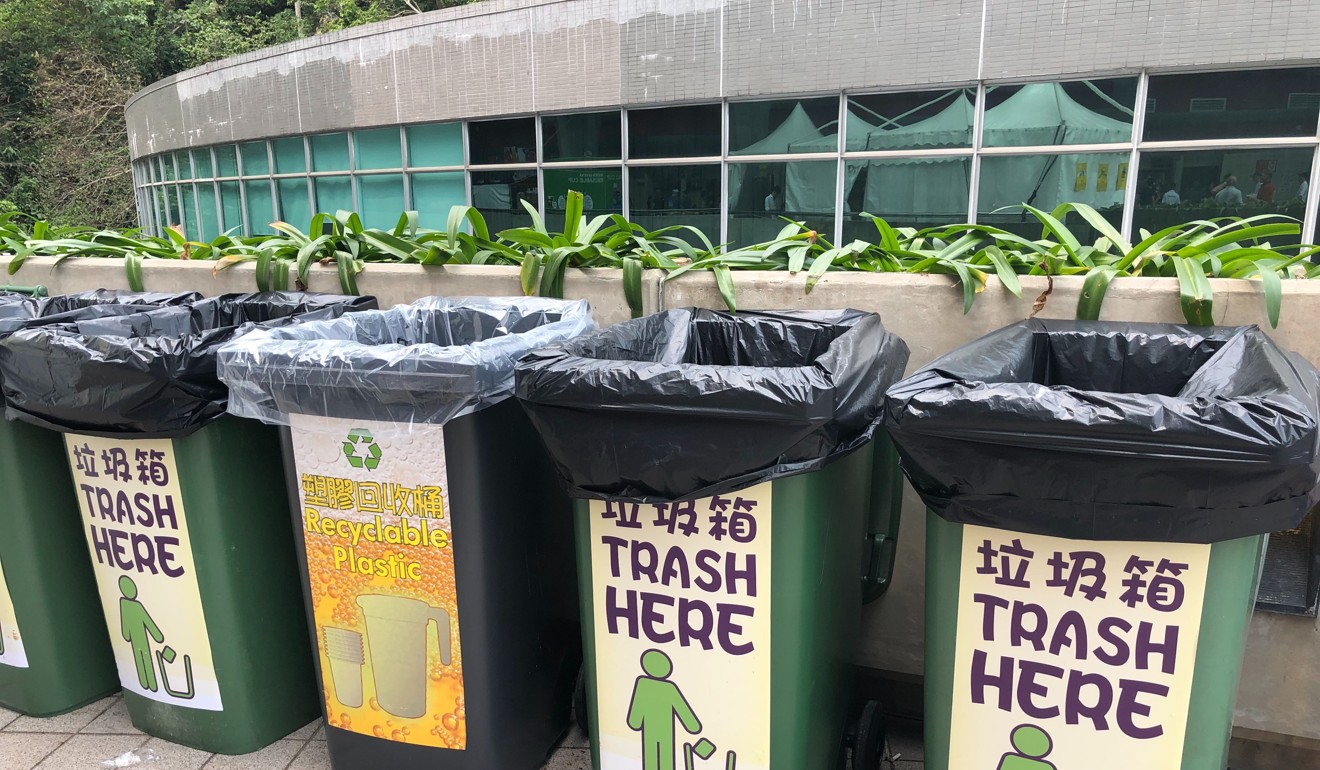Next step the South Stand? When it comes to Hong Kong Sevens, we’re all plastic fans
- This year’s Green Sevens initiative introduced reusable pint cups to most of the stadium
- Scheme was a huge success to follow on from other programmes to reduce waste and make Sevens more sustainable

This year marked the sixth annual Green Sevens campaign at the Cathay Pacific/HSBC Hong Kong Sevens and it dealt with single use plastic. It was the canniest idea yet.
Instead of filling up single use plastic pint pots, the Hong Kong Rugby Union bought 250,000 reusable cups and fans had to get one if they wanted to get a drink. That’s a masterstroke.
Single use plastic bottles are a huge issue, especially in Hong Kong where they find their way into the ocean so fair play to the HKRU.
The reusable cups are a simple, effective and painless solution that had little impact on fans with the exception that once they reached the front of the queue to order their refreshments they were told they needed a cup and it would cost them HK$10. Even the grumpiest of spectators would have to admit it is the most minor of inconveniences.
You could get your HK$10 back when returning the cup on the way out of the stadium or drop them in the “Cups-for-Charity” bin, ensuring the money goes to a good cause in the form of Laureus Sport for Good, the Sevens charity partner.
The agreement with local NGO Bottless means the cups will get a new life as they become available to be hired out for other events year-round, with an expected lifespan of five years.
There were bound to be teething issues. Regular announcements over the public address system reminded people not to take the cups home as you would not be allowed to bring them back the following day.
There was also no place for reusable cups in the South Stand, and those going in had to either return them for a refund or donate the HK$10, but one step at a time.
That was the message from the organisers and that’s entirely reasonable. To do so would have been an unnecessary headache, from explaining the concept to trying to get the cups back after they’ve been launched from the upper rows. Next year, maybe.

The bigger issue remaining, though was that soft drinks this year were still being poured from bottles. To be fair, these were collected to be recycled so it’s not as bad as it could be.
The Green Sevens initiative has been a significant success. There are no plastic straws and some vendors will offer customers a paper straw but only if they explicitly ask for it.
Elsewhere, the thousands of medals handed out to the youngsters are made from upcycled materials and recovered food is turned into meals to be donated to those in need. Last year 1,000 meals were created, while the largest ever amount of cooking oil was also recycled last year. Notably, rubbish was reduced 48 per cent year-on-year from 2017 to 2018.

The effort should be rightly lauded but what would a totally green Sevens look like? No plastic cutlery, no paper handed out in the media centre and a limit on the packaging involved at the concession and souvenir stalls.
More recycling bins would be good while, thinking more outside the box, a ban on glitter, perhaps the most aggressive of all microplastic transgressions, would be another that might take the shine off a few costumes but have a lasting impact. The same thing for balloons, while we’re at it.
In an ideal world, things would go even further. English Football League side Forest Green Rovers have made a name for themselves in this regard. The stand-out being their Zaha Hadid-designed New Lawn stadium in Nailsworth, Gloucestershire. The club is owned by UK green energy company Ecotricity’s founder Dale Vince.

They lead the way in going green and while Hong Kong is not going to get a stadium that’s largely built of wood or BREEAM certification to reduce its carbon footprint, there are other things that can be followed from Forest Green. There might not be any success in getting solar panels installed on the roof but perhaps someone can get the Hong Kong Stadium groundsman a solar-powered lawnmower?
Otherwise, Forest Green have been meat free since 2011 and that is another obvious area to tackle for a sustainable Sevens – and those Impossible burgers were so delicious that they had all gone by Sunday afternoon.
It’s all meat-free pie in the sky for now but much like the rugby itself, we should all be satisfied with what has proved to be another winning try.